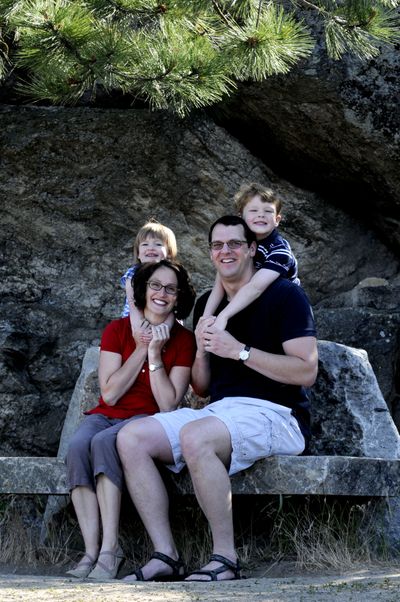WSU prepared law professor for prolific career

Russell Miller wondered if there was enough “then” in his football career to justify a “now” update. But if he didn’t play his way into the Hall of Fame during his days at Washington State, he can always talk about his brushes with greatness. That is, he could until now.
“Students ask if I played with anybody famous,” said Miller, now a professor of law at Washington and Lee University. “For years I’d been saying ‘Drew Bledsoe.’ But this year, for the first time, a student said, ‘Who’s that?’
“Is that devastating? Officially I’m a nobody again – or maybe just old.”
Or maybe Bledsoe might want to consider invoking Miller as his connect to greatness, or at least post-graduate gravitas.
There really couldn’t be a better time to catch up with Russell Miller. After the events of last week, which saw two current Cougars jailed and another, more notorious ex-quarterback making even more bad news, it’s worth remembering that most of Saturday’s warriors go on not only to productive lives, but sometimes exemplary ones.
In Miller’s case, that includes one of academia’s most prestigious distinctions – a year-long Fulbright Scholar senior research grant that will send him to Heidelberg, Germany, next month to complete work on two books and deliver lectures on constitutional and international law.
But that’s merely the most recent turn in a professional career that, among other things, has seen him defend death-row inmates in Arizona and Tennessee, clerk in the German equivalent of the Supreme Court, teach for six years as a member of the faculty at the University of Idaho and author three previous histories that marry serious international legal issues with local concerns.
It’s a long way from the Cougars scout team, or even sacking the Heisman Trophy winner – which Miller did to Ty Detmer in a 1990 game against Brigham Young.
Or maybe not all that far.
“There’s that pedestrian ad campaign the NCAA runs where the athlete steps out of bounds and is metamorphosized into a doctor,” said Miller. “But it’s true.”
There are a number of examples he likes to cite from his own WSU teams. Ron Hawkins, a financial planner in Spokane. Ed Tingstad, whose medical practice includes serving as the Cougars’ team doctor.
Even Paul Wulff, who’s a Pac-10 football coach.
“For the stable, middle-of-society, there’s a number of us who have benefited dramatically from the opportunity to play college sports,” Miller said. “I don’t know if you can sell tickets on Saturday with that sentiment or if it should change people’s expectations, but it’s worth reflecting on.”
Miller’s voice does not go into italics on the phrase “opportunity to play” – even though his was limited. Having sat his first two years at WSU and made a couple of cameos his third, he did not take for granted the snaps he got at defensive end as a senior – regardless of what got him on the field.
“I don’t know what goes on in the coaches’ meetings,” he said. “They certainly could have played a younger person to get him experience, and lots of people were faster or stronger. I have no illusions about any of that. Maybe it was a different era in Washington State football that they could reward sheer perseverance.”
His bond with the program is reflected, he joked, in “costly and dramatic switches from cable to satellite or whatever to see as many games as possible.” But mostly there are enduring values soaked up during those scuffling times, if only learning to compete and lose to compete again (“maybe something learned too well as a Cougar or as a perennial scout team player”) and horizons opened by teammates from here and everywhere else.
Both served him well in his first work out of law school at Duke University (where, concurrently, he also took a master’s degree in English literature) – those death-row appeals he found “rewarding, challenging and heartbreaking.”
“It was not unusual to go to my client’s family home and be the first lawyer to have visited them seven or eight years into the process,” he said. “There is no question that my exposure to the diversity of a football team paid dividends. Most of my clients were African-Americans. As a kid from Salmon, Idaho, where might have I found the emotional intelligence to engage their communities and work with their families without that experience?”
Four intense years of appellate work hastened his transition to the academic track, research and publishing, where he’s made his mark orienting questions of international law to the region: the Trail smelter arbitration, the Church committee’s investigation of executive abuses in national security issues and an omnibus inspired by the Wilsonian vision of Manley Hudson, the Harvard law professor who trekked to Idaho to deliver lectures at a foundation symposium named for Sen. William Borah, whose isolationist views were in direct opposition.
Miller’s latest project, a collaboration with a retired Notre Dame professor on German constitutional law, takes him often to South Bend, Ind. – though not to the College Football Hall of Fame.
“It would be too much to go and not find myself there,” he laughed.
But he’s closer than he might have been. Miller recalled his first recruiting encounter at Salmon, when the coach from what is now Montana-Western, an NAIA school in Dillon, came to visit. So agog was Miller that he went to his adviser – the school librarian – to get her thoughts, which summed up were, “Are you crazy?”
She had bigger challenges in mind; Miller has tackled them – in no small part, he insisted, because “I was well-prepared by having a Washington State education.”
And, he reminds us, he still has a year’s eligibility left.
It shouldn’t matter that his academic clock started long ago. For Russell Miller, it’s never stopped.